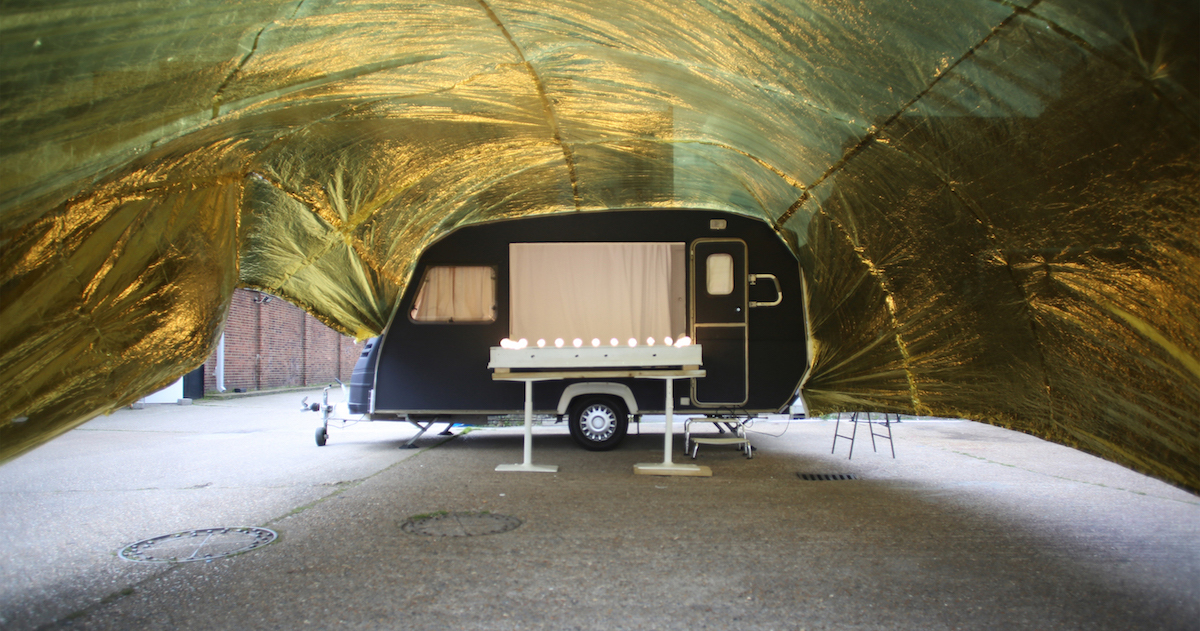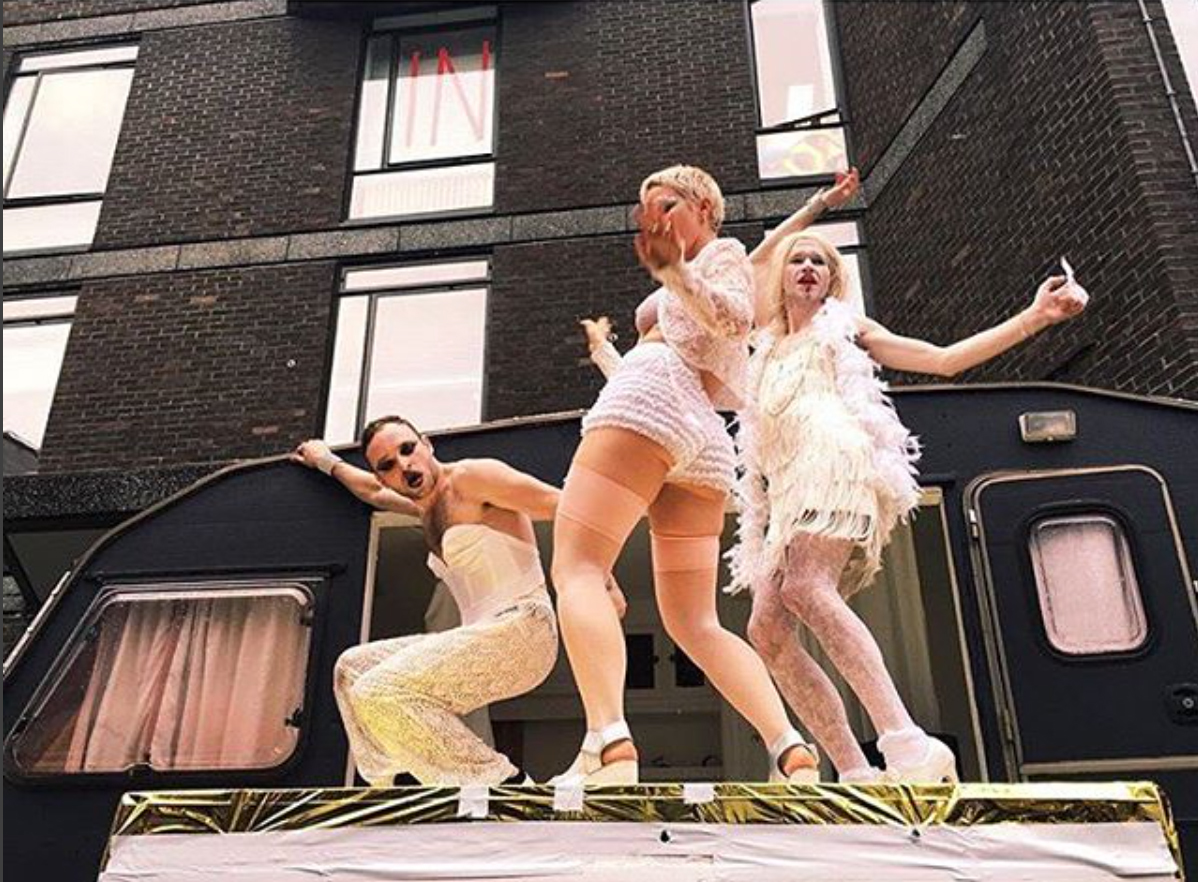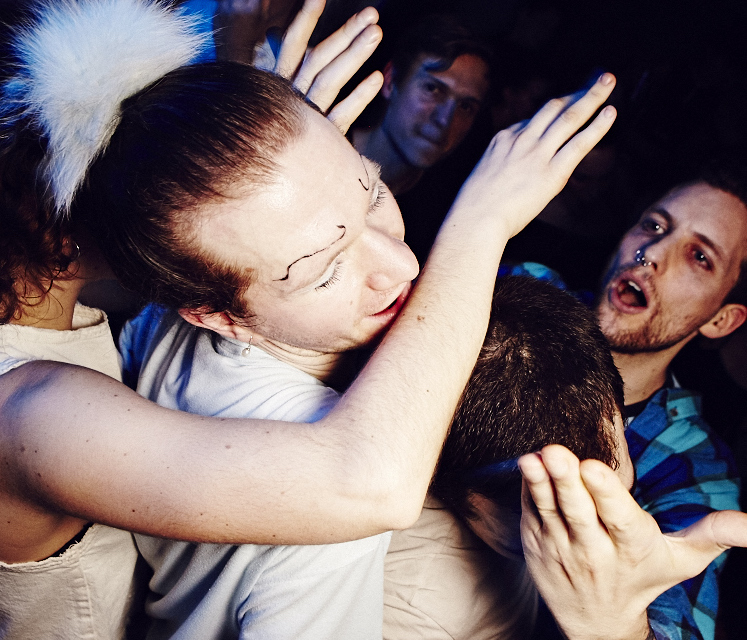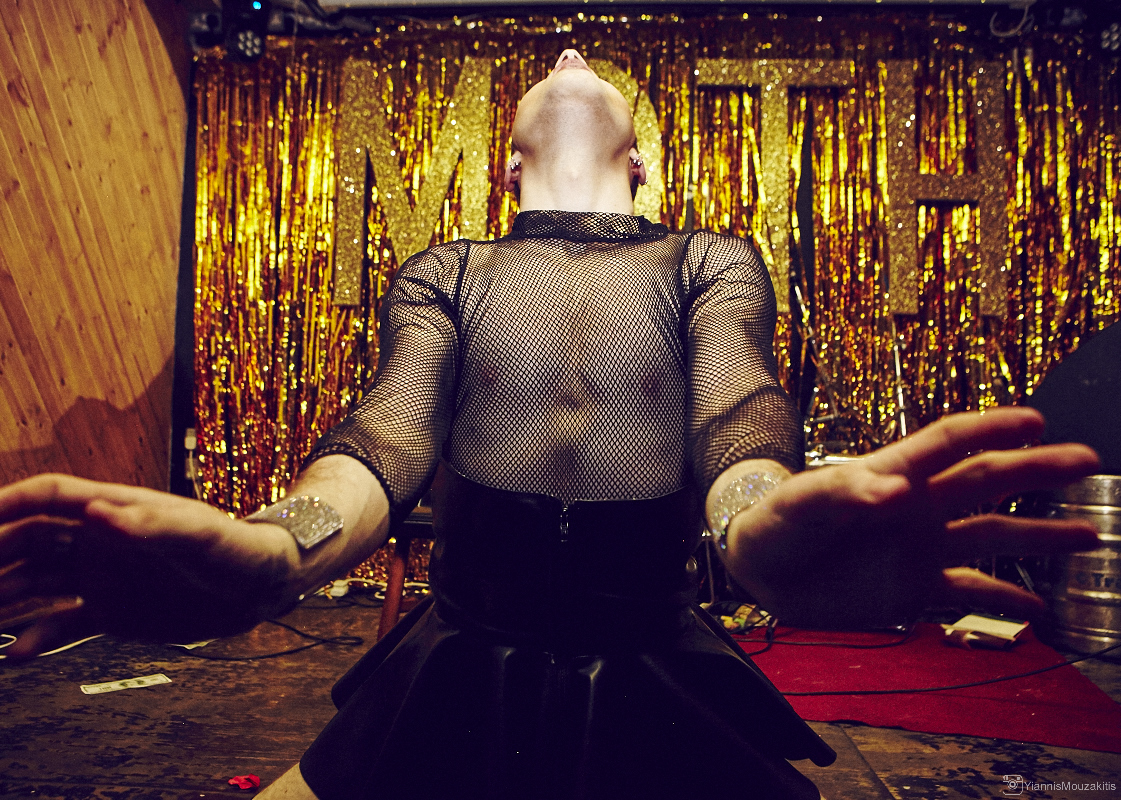As an architecture graduate, pseudo-drag performer and amateur filmmaker, my life is consumed by the concept of ‘queer space’; what it is and how we create it. I’ve spoken and written the word ‘regeneration’ so many times that its pronunciation brings a sense of familiar dread. Perhaps, I thought, it was time to stop complaining about the well known closure epidemic of London’s queer venues and to try and do something about it, however small.
So, as biblical rain drenched the concrete streets of the capital at the end of a typically British Summer day in August 2015, I sat next to my best friend of seven years, both of us clutching drinks, and we decided that it was time to start our own club night. Eight months later and we are preparing for the upcoming Fifth Issue of BUM.P this Saturday 2nd July at VFD.
But for me this was just the beginning. Two weeks ago I graduated from a conservative MA Architecture course at the RCA dancing on the top of a caravan stage in a white corset and matching lace trousers. Once again drenched in rain as thunder shook the streets of Kensington, this performance marked the end to my Diploma but the genesis of the CAMP-er-VAN.

The CAMP-er-VAN is an attempt to define queer space and design queer space. After the venues within which I found my closest friends started closing their doors, I wanted to see if the spaces that gave me the confidence and the pride to strip down into a thong and death drop in front of my parents, spaces such as The Black Cap, the Joiners Arms and the George and Dragon, spaces that are now diminishing, could be replicated.
I remember the first time I walked into Bar Wotever, the Royal Vauxhall Tavern’s weekly cabaret and performance variety night, I was there to help film part of a documentary for the RVT futures campaign to protect the building from development but I had no idea that I would be entering a cesspit of performance experimentation. From spoken word to polemical drag, abstract dance to OAP burlesque, environments such as the RVT illustrate how queer spaces have and will always be sources of escapist amusement.
Drawing from this, I wanted the CAMP-er-VAN to provide a similar platform for freedom of expression. So equipped with a jigsaw and a shaky ladder, I cut a square out of the side of a road vehicle and made a stage that had to be strong enough to support a three-person choreographed routine to Get Into the Groove. On the one hand, doing this allowed me to realise the potential of deployable structures to bring the wonder of queer entertainment to the public realm, but on the other it propelled me to the reality of expressing myself outside of the confines of ‘safe space’ and how uncomfortable I felt doing that. In the wake of the Orlando tragedy and being asked to partake in the Summer of Love series, I began to consider my own behavioural adjustments and how the evolution queer spaces have helped me to navigate the world.

Despite the interminable closures queer nightlife is booming. From Badman Pull Up to Hard Cock Life, Loverboy to Hot Snatch and Savage, recent history has seen the rise of the temporary queer event, often imported into a straight venue for one night of the week. Whilst the dynamism of the resilient queer community should be celebrated, as the amount of temporary nights grows, the number of permanent, inclusive and accessible spaces diminishes. Many people who wouldn’t feel comfortable in an intense, sweaty basement are limited in their opportunities.
So, trying to cultivate an environment within which people feel comfortable to express themselves became the starting point when developing BUM.P. We simply wanted to create a space where all ages, races, genders and sexualities could lose themselves in dance. Innumerable nights in London have come before and will emerge in the future to provide a similar platform, but the experience of trying to make an event where people can walk around in jock straps or sequin dresses, high heels or ceremonial garb has made me realise how fundamental these liberating spaces are, and how we can never have enough.

The London queer scene might be changing and certain spaces are become less sustainable than others. Yet what all of this has taught me is that queer space is a concept. It is the claiming of territory, the naming of a space where difference is not tolerated but celebrated.
For me, projects like my CAMP-er-VAN and BUM.P are not solutions to a complex socio-economic discourse of gentrification, rather they aspire to open up a dialogue. The spaces we carve out for ourselves that we deem to be queer are not just safe spaces for a diverse community, they serve a moral and ethical model of subversive spatial organisation. They prove that what we have in common is far greater than our differences and that, united in diversity, descent into carnage becomes a thing of beauty.
BUM.P // Jacqui Potato’s Birthday Issue, Saturday 2nd July, VFD 66 Stoke Newington High Street, 2200-0300. The UK Tour of the CAMP-er-VAN will begin at the end of August 2016.
Credits
Text Samuel Douek
